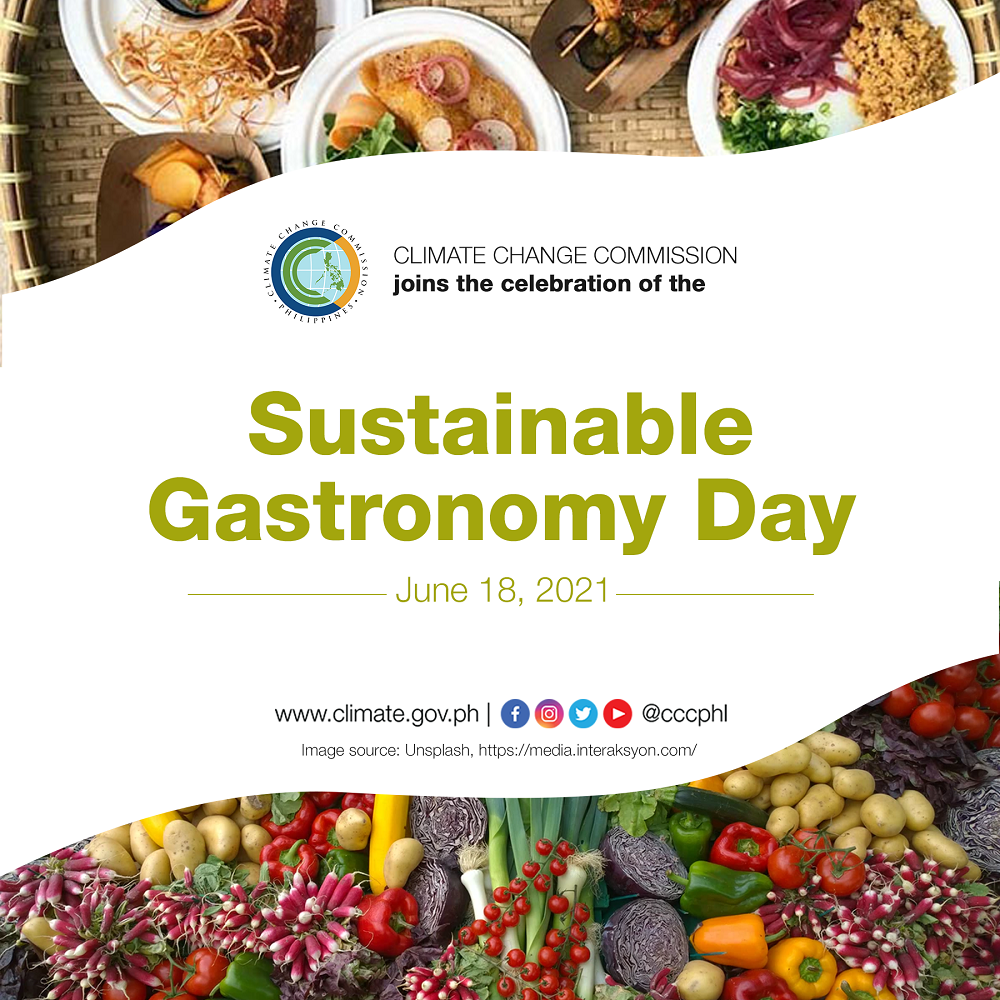
June 15, 2021 Tuesday

MANILA, 16 June 2021 — The Climate Change Commission (CCC) joins the world in the celebration of local ingredients and producers, preserving culinary traditions and the environment, raising awareness on global sustainable development measures across the sectors of agriculture, forestry, and fisheries, and to practice sustainability in our daily lives this Sustainable Gastronomy Day.
June 18 of each year marks the celebration of Sustainable Gastronomy Day under UN General Assembly Resolution A/RES/71/246. This celebration aims to focus the world’s attention on the role that sustainable gastronomy can play in achieving the Sustainable Development Goals, including by promoting agricultural development, food security, nutrition, sustainable food production and the conservation of biodiversity,
Gastronomy is the study of the relationship between food and culture. It involves training and studying the preparation, production, and service of the various foods and beverages, from countries around the world. Sustainability is the idea of something that is done in a way without causing any infliction to our natural resources and can be continued into the future without harming our environment or health.
Sustainable gastronomy is the cuisine that takes into account where ingredients are from, how food is grown/sourced and how it gets to our markets and our plates, according to the Food and Agriculture Organization of the United Nations.
But the Special Report on Climate Change and Land released by the Intergovernmental Panel on Climate Change estimated that food generated between 21% and 37% of man-made emissions, specifically from: (i) crop and livestock activities within the farm; (ii) land use and land-use change dynamics associated with agriculture; and (iii) food processing, retail and consumption patterns, including the manufacture of chemical fertilizers and fuel.
For this celebration, the CCC urges everyone to help build a common vision for sustainable gastronomy — where food is nutritious and accessible to all, where we use clean sources of energy for cooking like through natural gas and electricity instead of coal, where we use biodegradable packaging like cooking and wrapping food in banana leaves, and where our ingredients and natural resources are managed in a way that maintains ecosystem functions to support current human needs, and lowers our carbon footprint.